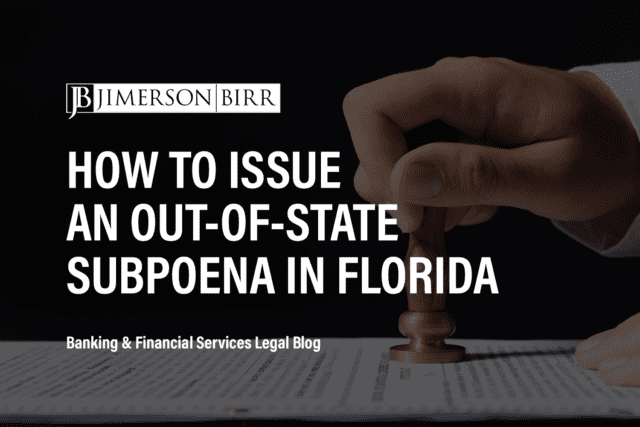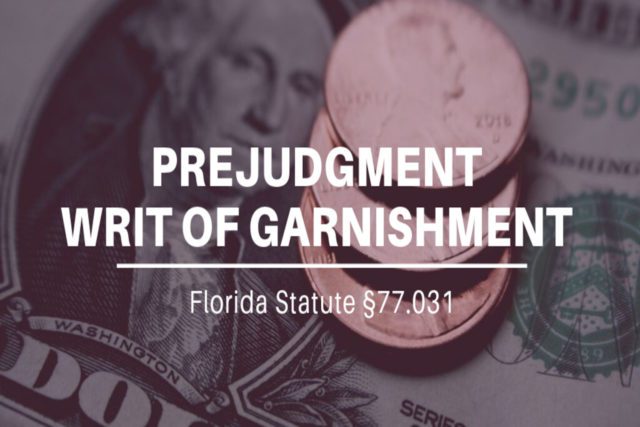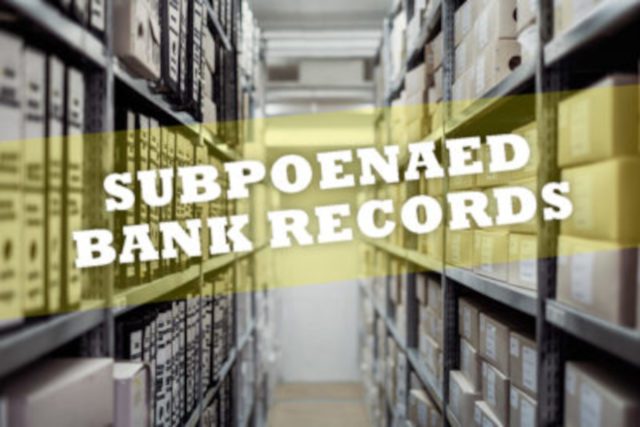How does garnishment and subpoena response affect banking companies?
Garnishment and subpoena response can significantly affect banking companies, impacting their operations, customer relationships, and legal obligations. When a banking company receives a garnishment order or subpoena, it is typically required to comply with the legal requirements outlined in the document. Garnishment orders may be issued by courts or government agencies to compel banks to withhold funds from a customer’s account to satisfy a debt owed to a creditor, such as a judgment creditor, tax authority, or child support agency. Subpoenas, on the other hand, are legal orders issued by courts or government agencies requiring banks to produce documents, records, or testimony in connection with a legal proceeding, investigation, or regulatory inquiry.
The response to garnishment and subpoena requests involves several critical considerations for banking companies. Firstly, compliance with legal requirements is paramount. Banks must ensure that they adhere to all applicable laws, regulations, and court orders governing garnishment and subpoena response. This includes accurately identifying and verifying the accounts or records subject to garnishment or subpoena, withholding, or producing the requested funds or documents within the specified timeframe, and protecting customer confidentiality and privacy rights throughout the process.
Garnishment and subpoena response can also have operational and administrative implications for banking companies. Responding to garnishment orders and subpoenas requires banks to allocate resources, time, and personnel to review, process, and fulfill the requests effectively. This may involve coordination between different departments within the bank, such as legal, compliance, operations, and customer service, to ensure timely and accurate responses while minimizing disruptions to normal business operations.
Furthermore, garnishment and subpoena response can impact customer relationships and reputational risk for banking companies. Customers whose accounts are subject to garnishment may experience financial hardship or inconvenience, leading to dissatisfaction or loss of trust in the bank. Similarly, the handling of subpoena requests may affect customers’ perceptions of the bank’s commitment to privacy and data protection. Banking companies must communicate transparently and sensitively with affected customers, providing clear information about the legal requirements and implications of garnishment and subpoena response, while also protecting customer confidentiality and rights to the extent permitted by law.
Need help regarding garnishment and subpoena response? Schedule your consultation today with a top banking attorney.
In Florida, which laws and regulations apply to garnishment and subpoena response?
In Florida, garnishment and subpoena response are governed by a combination of state and federal laws, regulations, and court rules. Some of the key laws and regulations that apply to garnishment and subpoena response in Florida include:
- Florida Statutes, Chapter 77: This chapter outlines the procedural requirements and legal framework for garnishment proceedings in Florida. It establishes rules for obtaining, serving, and responding to garnishment orders, including requirements for notice to the debtor, exemptions from garnishment, and procedures for challenging or objecting to garnishment.
- Rule 1.410, Florida Rules of Civil Procedure: Florida Rules of Civil Procedure: The Florida Rules of Civil Procedure govern civil litigation proceedings in Florida courts, including rules governing the issuance, service, and enforcement of subpoenas. Rule 1.410 specifically addresses subpoenas, outlining the procedures for issuing subpoenas, objections to subpoenas, and motions to quash or modify subpoenas. The corresponding federal civil procedure rule can be found here.
- Gramm-Leach-Bliley Act (GLBA): The GLBA is a federal law that governs the privacy and security of consumer financial information held by financial institutions, including banks. While not specific to garnishment or subpoena response, the GLBA imposes requirements for safeguarding customer information and may impact the disclosure of financial records in response to subpoenas or court orders.
What are common issues regarding garnishment and subpoena response that lead to litigation?
Several common issues related to garnishment and subpoena response can lead to litigation:
- Failure to Comply with Legal Requirements: Failure to comply with the procedural requirements outlined in state and federal laws, regulations, and court rules governing garnishment and subpoena response can lead to litigation. This may include errors in serving or responding to garnishment orders or subpoenas, failure to provide required notices to affected parties, or failure to adhere to deadlines for filing objections or motions.
- Disputes over Exemptions: Garnishment orders may be subject to exemptions under state and federal law, protecting certain types of income, property, or assets from garnishment. Disputes may arise over the applicability of exemptions, eligibility criteria, or interpretation of exemption statutes, leading to litigation to determine the rights of the parties involved.
- Claims of Improper Service or Notice: Litigation may arise from allegations of improper service or notice in connection with garnishment orders or subpoenas. Parties may challenge the validity of service or notice procedures, alleging deficiencies such as failure to serve the documents on the correct party, failure to provide adequate notice of rights or obligations, or failure to comply with statutory service requirements.
- Privacy and Confidentiality Concerns: Litigation may result from disputes over privacy and confidentiality concerns related to garnishment and subpoena response. Parties may challenge the disclosure of sensitive financial information, alleging violations of privacy rights or confidentiality obligations under state or federal law, such as the GLBA or attorney-client privilege.
- Disputes over Scope or Relevance: Parties may dispute the scope or relevance of information requested in subpoenas, alleging overbroad or unduly burdensome requests. Litigation may arise from motions to quash or modify subpoenas, seeking court intervention to limit the scope of discovery, protect privileged information, or address other objections raised by the responding party.
- Allegations of Abuse or Misconduct: Litigation may result from allegations of abuse or misconduct in connection with garnishment or subpoena response. Parties may allege improper use of garnishment as a debt collection tool, abusive or harassing conduct by creditors or their representatives, or violations of consumer protection laws or procedural rules governing garnishment and subpoena proceedings.
- Enforcement and Collection Disputes: Litigation may arise from disputes over enforcement and collection efforts following the issuance of garnishment orders or subpoenas. Parties may challenge the validity of garnishment actions, seek to quash, or vacate garnishment orders, or pursue claims for damages or injunctive relief based on alleged wrongful conduct by garnishers or garnishees.
We are value-based attorneys at Jimerson Birr, which means we look at each action with our clients from the point of view of costs and benefits while reducing liability. Then, based on our client’s objectives, we chart a path to seek appropriate remedies.
To determine whether your unique situation may necessitate litigation, please contact our office to set up your initial consultation.
What steps should businesses take to minimize the risk of litigation over garnishment and subpoena response?
- Establish Robust Compliance Procedures: Develop and implement robust policies, procedures, and controls for responding to garnishment orders and subpoenas. Ensure that all employees involved in the garnishment and subpoena response process are trained on legal requirements, procedural rules, and compliance obligations.
- Centralize and Standardize Processes: Centralize the handling of garnishment and subpoena response within the organization to ensure consistency, accuracy, and compliance with legal requirements. Standardize processes for reviewing, processing, and responding to garnishment orders and subpoenas to minimize errors and reduce the risk of non-compliance.
- Conduct Thorough Due Diligence: Conduct thorough due diligence on garnishment orders and subpoenas to verify their validity, authenticity, and compliance with legal requirements. Verify the identity of the issuing party, review the scope and purpose of the request, and assess any potential legal or procedural issues before responding.
- Ensure Proper Service and Notice: Ensure that garnishment orders and subpoenas are properly served, and notice is provided to affected parties in accordance with applicable legal requirements. Verify that the documents are served on the correct parties, contain all required information, and comply with statutory service procedures to avoid challenges to the validity of service or notice.
- Protect Customer Privacy and Confidentiality: Safeguard customer privacy and confidentiality rights by limiting the disclosure of sensitive financial information in response to garnishment orders and subpoenas. Adhere to legal requirements and industry best practices for protecting customer data, including compliance with privacy laws such as the GLBA.
- Document and Retain Records: Maintain accurate and complete records of all garnishment and subpoena response activities, including copies of garnishment orders, subpoenas, responses, communications, and supporting documentation. Document the rationale for decisions made and retain records in accordance with applicable record retention requirements.
Frequently Asked Questions
What types of garnishment orders are commonly issued against banks?
Common types of garnishment orders issued against banks include wage garnishments, bank account garnishments, and asset garnishments. These orders may be issued by courts or government agencies to satisfy debts owed by bank customers to creditors, such as judgment creditors, tax authorities, or child support agencies.
What types of records or documents may be requested in a subpoena?
Subpoenas may request a wide range of records or documents, including financial records, transaction history, account statements, loan documents, correspondence, contracts, or any other documents relevant to a legal proceeding, investigation, or regulatory inquiry.
What are the potential consequences of non-compliance with garnishment and subpoena orders?
Non-compliance with garnishment and subpoena orders can result in legal penalties, regulatory sanctions, reputational damage, and potential litigation. Businesses may be subject to fines, penalties, or other legal consequences for failure to comply with legal requirements governing garnishment and subpoena response.
Have more questions about a garnishment and subpoena response-related situation?
Crucially, this overview of garnishment and subpoena response does not begin to cover all the laws implicated by this issue or the factors that may compel the application of such laws. Every case is unique, and the laws can produce different outcomes depending on the individual circumstances.
Jimerson Birr attorneys guide our clients to help make informed decisions while ensuring their rights are respected and protected. Our lawyers are highly trained and experienced in the nuances of the law, so they can accurately interpret statutes and case law and holistically prepare individuals or companies for their legal endeavors. Through this intense personal investment and advocacy, our lawyers will help resolve the issue’s complicated legal problems efficiently and effectively.
Having a Jimerson Birr attorney on your side means securing a team of seasoned, multi-dimensional, cross-functional legal professionals. Whether it is a transaction, an operational issue, a regulatory challenge, or a contested legal predicament that may require court intervention, we remain tireless advocates at every step. Being a value-added law firm means putting the client at the forefront of everything we do. We use our experience to help our clients navigate even the most complex problems and come out the other side triumphant.
If you want to understand your case, the merits of your claim or defense, potential monetary awards, or the amount of exposure you face, you should speak with a qualified Jimerson Birr lawyer. Our experienced team of attorneys is here to help. Call Jimerson Birr at (904) 389-0050 or use the contact form to schedule a consultation.

We live by our 7 Superior Service Commitments
- Conferring Client-Defined Value
- Efficient and Cost-Effective
- Accessibility
- Delivering an Experience While Delivering Results
- Meaningful and Enduring Partnership
- Exceptional Communication Based Upon Listening
- Accountability to Goals











